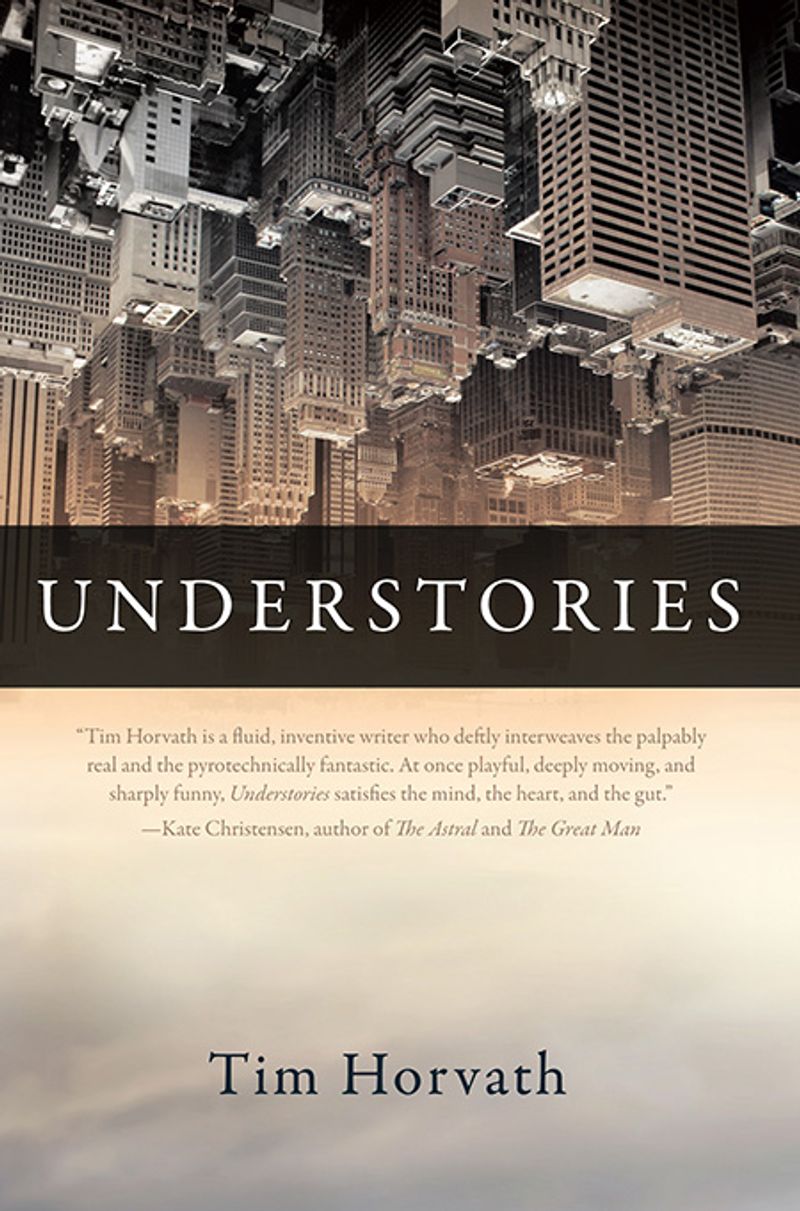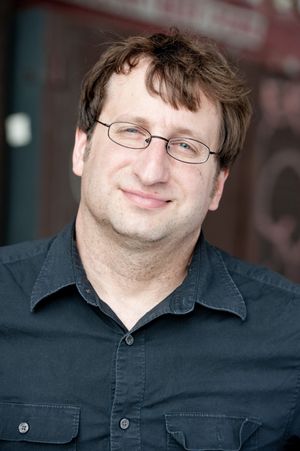Understories
What if there were a city that consisted only of restaurants? What if Paul Gauguin had gone to Greenland instead of Tahiti? What if there were a field called Umbrology, the study of shadows, where physicists and shadow puppeteers worked side by side? Full of speculative daring though firmly anchored in the tradition of realism, Tim Horvath’s stories explore all of this and more— blending the everyday and the wondrous to contend with age-old themes of loss, identity, imagination, and the search for human connection. Whether making offhand references to Mystery Science Theater, providing a new perspective on Heidegger’s philosophy and forays into Nazism, or following the imaginary travels of a library book, Horvath’s writing is as entertaining as it is thought provoking.
New Hampshire Literary Award Winner
NPR Books Summer Reading Selection
New Hampshire Public Radio Summer Books Selection
Salon What to Read Awards
Largehearted Boy Favorite Short Story Collection of the Year
Late Night Library Battle of the Books Final Four
Understories has also been recognized as one of the best books of the year by Matt Bell, Michele Filgate (@ Vol. 1 Brooklyn), Okla Elliott (@ Heavy Feather Review), Jason Jordan, Jennifer Spiegel, Terry Weyna (@ Reading the Leaves), and Amber Sparks (@ Big Other).

Ebook
- ISBN
- 9781934137499
Paperback
- ISBN
- 9781934137444
Listen to librarian extraordinaire and “NPR’s go-to books guru” Nancy Pearl discuss Understories with Steve Inskeep on NPR’s Morning Edition and with Steve Scher on KUOW’s The Record; and watch her describe how her “favorite collection of short stories in recent memory” is part of a new tradition of “elastic realism” in contemporary literature.
Listen in on a very fun conversation with Tim Horvath and Brad Listi on the Other People podcast. Topics include their Midwestern childhood, bridge climbing in New York, the birthday they both share with Herman Melville, Dom DeLuise, and Jerry Garcia, and Tim’s “red hot” Understories.
Tim Horvath discusses Understories with the Boston Globe and Bloom; muses on his inspirations at TSP: The official blog of The Story Prize; explains his offbeat research for the collection at Necessary Fiction; answers questions at Monkeybicycle; and contributes a guest post for Robert Lopez’ “No News Today” series.
Tim Horvath, a graduate of Vassar College, Teachers College-Columbia University, and the University of New Hampshire, is an associate editor for Camera Obscura Journal and teaches creative writing at New Hampshire Institute of Art and Boston’s Grub Street writing center. He has also worked part-time as a counselor in a psychiatric hospital, primarily with autistic children and adolescents. Understories, Horvath’s first collection of short fiction, includes the award-winning “Understory,” selected by Bill Henderson for the Raymond Carver Short Story Award, and “Circulation,” selected by Clark Blaise for the Society for the Study of the Short Story Prize. His stories have also appeared in Conjunctions, Fiction, Alimentum, Puerto del Sol, and elsewhere. He lives in New Hampshire with his wife and daughter.
visit author page »Praise for Understories
Gets at the heart of our contemporary zeitgeist . . . Echoing the intricate metaphysical labyrinths of Borges, the philosophizing literary absurdity of David Foster Wallace, and the American-styled magical realism of Lethem, [Understories] is a deeply reflective, highly imaginative work.
Weird and wonderful. . . . But for all th[e] playfulness—sometimes intellectual, sometimes bawdy—Understories is no rarefied exercise. Horvath rallies all the senses, smell and touch and taste and the others, in support of his interrogation of the universe, and his work is firmly grounded in the real world no matter how fantastic his musings.
As any great book, Understories confronts the making of fiction itself, intermittently directly confronting the mechanics of fabrication. . . . A major accomplishment by a major writer . . . full of writing as deeply aware of its antecedents as it is aware of the possibilities within, of, and about narrative.
Every echo, despite its resonance, is a kind of individual pocket. . . . As a fiction collection, then, Understories resonates not only on the stories as stories, but as an arrangement of individual parts. The buzz it gives off is the combined buzz of countless pockets, all charged with a life and surprise of their own.
Understories is fueled by a wonderfully inventive mind, but ultimately, it is a mind in service to the heart. Horvath’s attention is always squarely on us: who we are, who we have been, and how a great story can transform us.
— Matt Bell, author of Cataclysm Baby
Remarkable writing and remarkably rewarding reading: stories equally saturated in contemporary fact and transfactual acids. An atlas of canny and uncanny maps, mainly cityscapes, of the branching imagination and convoluted heart. Move over, Mercator and Google Earth: make way for Horvath’s haunting projections.
— Brian Boyd, author of Stalking Nabokov
Tim Horvath is a fluid, inventive writer who deftly interweaves the palpably real and the pyrotechnically fantastic. At once playful, deeply moving, and sharply funny, Understories satisfies the mind, the heart, and the gut.
— Kate Christensen, author of The Astral and The Great Man
Horvath seems to be channeling, all at once, Borges and Calvino and Kevin Brockmeier. And it all works.
— Rebecca Makkai, author of The Borrower
‘The Understory’ is a terrific reach through history from the pre- and post- Nazi era in Germany up to the present. . . . This is a wonderful story, a first-rate creation by a fine writer.
— Bill Henderson, president and editor of Pushcart Press, in his judge’s statement for the Raymond Carver Short Story Award
Tim Horvath is a wonderful writer. There’s a musicality to his prose. It’s evident that he enjoys the way words can sound on the page. His debut short story collection from Bellevue Literary Press reminds me a bit of Kevin Brockmeier, in the sense that both writers combine wordplay with speculative fiction.
Horvath’s stories simultaneously stimulate the intellect while being fantastically imaginative. Contemporary urban life is examined through the looking glass, twisted slightly but still entirely recognizable and relatable. His images imprint, linger and the characters balance on the fine edge of what is real and what is imagined. This is memorable stuff.

